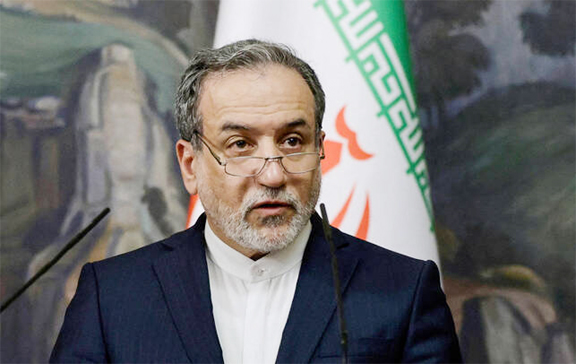DE News Desk :
The latest round of nuclear talks between Iranian and U.S. negotiators concluded in Oman on Sunday, with both sides describing the discussions as difficult but constructive.
A new date and venue for the next round will be announced soon, officials confirmed.
The indirect negotiations, facilitated by Omani mediators, aimed to bridge longstanding differences over Iran’s nuclear programme.
Despite public posturing, both Tehran and Washington have reiterated their preference for a diplomatic resolution to the decades-old standoff, though key sticking points remain unresolved.
Esmaeil Baghaei, spokesperson for Iran’s Foreign Ministry, described the discussions as “difficult but useful,” adding on social media platform X that the talks helped both parties better understand each other’s positions.
U.S. and Iranian officials met for over three hours in what was described as both “direct and indirect” dialogue.
A senior official from the administration of U.S. President Donald Trump said, “We are encouraged by today’s outcome and look forward to our next meeting, which will happen in the near future.”
The session in Muscat marked the fourth round of backchannel diplomacy between Iranian Foreign Minister Abbas Araqchi and U.S. Middle East envoy Steve Witkoff.
Talks took place ahead of President Trump’s upcoming visit to the region, and amid renewed American demands that Iran cease all uranium enrichment.
Last Thursday, Witkoff told Breitbart News that the U.S. red line remains “no enrichment, no weaponization,” calling for the dismantlement of Iran’s nuclear facilities in Natanz, Fordow, and Isfahan.
However, Tehran has firmly rejected any such conditions.
“Iran will not compromise on its nuclear rights,” Araqchi said Sunday, reiterating that enrichment is a non-negotiable aspect of the country’s programme.
Iranian officials have signaled openness to curbs in exchange for sanctions relief but refuse to halt enrichment or surrender enriched uranium stockpiles—measures they consider core red lines.
A senior Iranian official close to the negotiations, speaking on condition of anonymity, said, “U.S. demands for zero enrichment and dismantling Iran’s nuclear sites are unrealistic and counterproductive. What is said publicly often differs from what is discussed behind closed doors.”
Tehran has also ruled out including its ballistic missile programme in any talks and is seeking firm guarantees that Washington will not unilaterally abandon any future agreement, as it did with the 2015 nuclear accord.
The Trump administration withdrew from the Joint Comprehensive Plan of Action (JCPOA) in 2018 during his first term, reimposing severe sanctions that have crippled Iran’s economy.
In response, Iran began scaling back its compliance in 2019 and has since increased its uranium enrichment to 60% purity—close to weapons-grade—according to the UN’s nuclear watchdog.
While no breakthroughs were announced, the continuation of dialogue suggests both sides are still seeking a negotiated off-ramp from escalating tensions.

